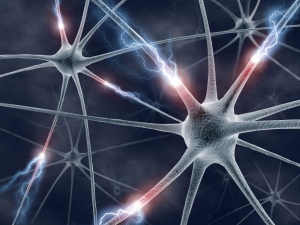Fact Sheet: Alcohol and the Brain
Alcohol Change UK have released a fact sheet highlighting the various ways alcohol can affect the health of your brain as well as changes you can make in order to take care of this vital organ.
Alcohol Change UK have released a fact sheet highlighting the various ways alcohol can affect the health of your brain as well as changes you can make in order to take care of this vital organ.
Adolescence is a period of time where young people are more likely to seek independence and novel experiences, experiment with their expression and identity and have less regard for risk. Given the natural surge in sensation-seeking...
Highlights
Th...
Highlights
Substance use is one way that people deal with the difficult symptoms present in mood and anxiety disorders. As people become more reliant on the effects of the substances to relieve distress the use can develop into dependence. Self‐medica...
Benzodiazepines, such as sedatives and sleeping aids, are a widely prescribed group of medicines designed for short-term treatment. Although most people manage benzodiazepines as prescribed, some individuals misuse the drugs and can develop...
The controversial subject of cannabis legalisation has led to the increased urgency in understanding the full health and social implications of the drug use. Cannabis use is particularly prevalent amongst adolescence - a period of time...
Abuse of opioids can lead to many adverse consequences including addiction and heightened risk of overdose, however it is being increasingly suggested that even controlled use of prescription opioids may be linked with serious and enduring...
Adolescence is a time where young people go through dramatic changes in body and behaviour. It is an age where young people are most likely to take risks, partake in reward-seeking activities and experience the first symptoms of mental ill...
Consuming alcohol often comes with negative side effects, such as nausea or headaches, however we have a tendency to remember the positive experience of drinking rather than the negative consequences. Understanding how alcohol influences...
Cannabis remains the most commonly used illicit drug worldwide and, with the rise of decriminalisation and legalization of marijuana for medical and recreational use, it is expected this will increase even further. There are, however...

Alcohol is known to affect a region in our brain called the Ventral Tegmental Area (VTA), otherwise known as the “pleasure centre”. By activating specific neurones that then go on to release the neurochemical dopamine within this...
Cocaine addiction is linked with uncontrollable drug seeking. Cues within the environment act as a constant reminder of the experience and can lead to relapse. Current medication options are limited when it comes to meeting the needs for...
Both alcohol and cannabis misuse is linked with impaired mental functioning. Understanding the impact of substance use is particularly important when studying the developing brain.
A recent piece of research, published in the American...
A recent study has found that Native American adolescents are at greater risk of alcohol and drug abuse than other American teens.
Survey results were collected from 1,700 Native American students at 31 schools across the United States and...
Individuals suffering from substance use disorders develop strong associations between the drug’s stimulating effect and environmental cues that act as reminders of the experience, which can lead to relapse.
A recent study has proposed a...
It has been suggested that individuals with low self-esteem are more likely to choose maladaptive coping behaviors, such as abuse of opioids, when faced with life stressors.
In a recent study conducted in New York, over 1000 adults, of...
According to a new study published in the American Journal of Preventive Medicine, mothers’ cannabis use is associated with earlier cannabis initiation by their children.
The research, which analysed longitudinal data for 4,440 children...
Share the Knowledge: ISSUP members can post in the Knowledge Share – Sign in or become a member